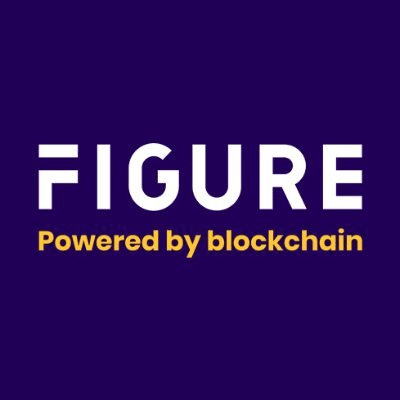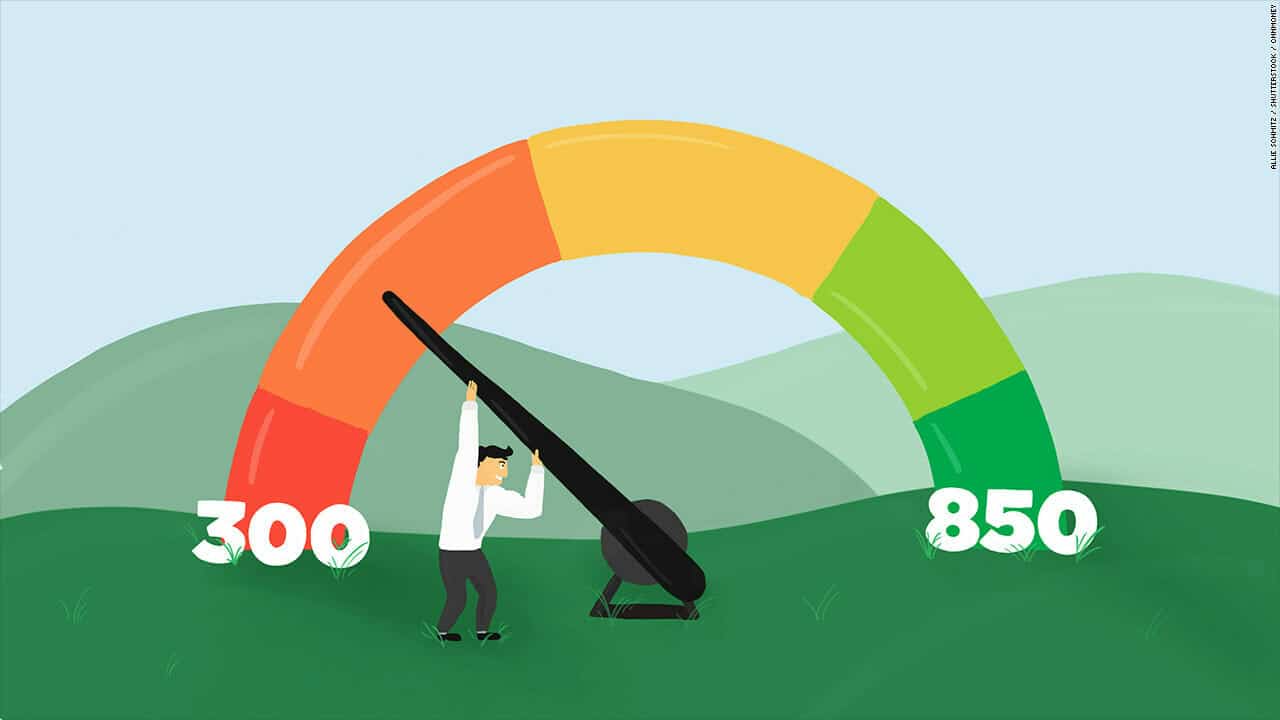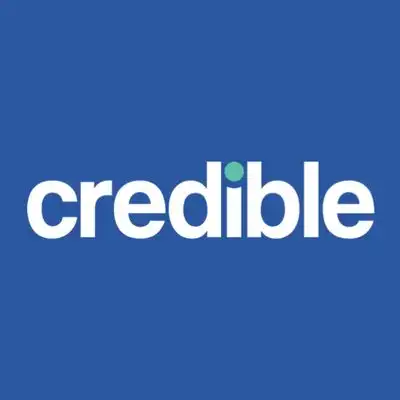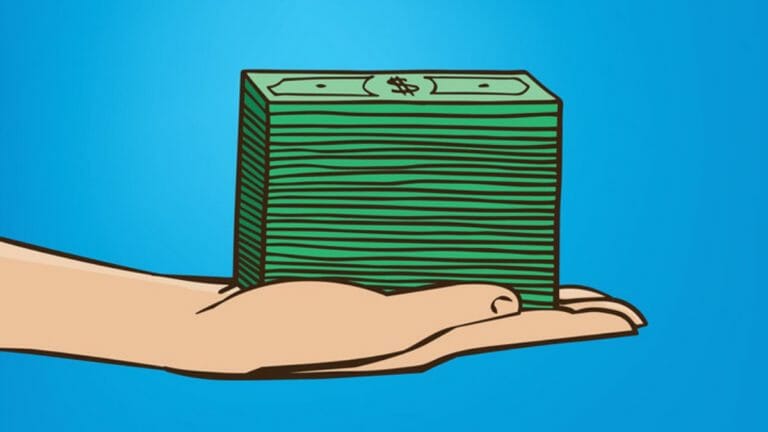- Temporary Programs Due to the Covid-19 Pandemic
- Options For Working With Your Current Lender or a New One
- I Can’t Pay My Mortgage: What Are My Options?
- Refinance or Defer Other Debt
- Make Some Extra Money
- Save Money with Lifestyle Changes
- Bankruptcy: The Nuclear Option
- Rethink the So-Called American Dream of Homeownership
We are in a situation that none of us has been in before. The economy is spiraling, millions are unemployed, and we’re dealing with a pandemic that has no end in sight. It’s an understatement to say things are scary. For many homeowners, the fear of losing their homes is at the top of the list of things keeping them awake at night. If you’re among them and madly Googling, “I can’t pay my mortgage. What are my options?” this is for you.
Don’t panic. While it’s terrifying to be unable to make your mortgage payments, the sliver of a silver lining is that millions of your fellow Americans are in the same boat.
As the economic fallout from the coronavirus pandemic continues, almost one-third of U.S. households, 32%, have not made their full housing payments for July.
That number includes renters. As of May, more than 4.1 million American homeowners were in mortgage forbearance.
Extended unemployment benefits are running out, Congress continues to play keep-away with any kind of help, and the moratorium on foreclosures expires on August 31.
When you can’t pay your mortgage, you have a problem. When millions of us can’t pay our mortgage, the banks and the government have a problem.
Tweet ThisThere are ways to save your home, but you must act quickly. It’s not a situation where you can stick your head in the sand and hope it goes away.
Let’s dive in!
Temporary Programs Due to the Covid-19 Pandemic
Before you make use of our suggestions, try getting help through a program put in place because of the financial hardship the pandemic created.
The other options here are always available, but these programs are temporary.
The CARES Act
The Coronavirus Aid Relief and Economic Security Act (CARES Act) was passed in March and offered some protection for homeowners who have federally backed mortgages: FHA, VA, USDA, Fannie Mae, and Freddie Mac.
Almost half of the American mortgages are owned or backed by Fannie Mae or Freddie Mac.
If you aren’t sure who owns or backs your mortgage, you can call your loan servicer, and they are obligated to provide you with the information.
You can find the number for your mortgage servicer on your monthly mortgage statement or coupon book.
Under the CARES Act, homeowners with federally backed mortgages have four forms of relief:
- Lenders must suspend borrower’s payments for up to 12 months if they have lost income due to the pandemic
- During your forbearance period, your servicer cannot charge you any penalties, interest, or fees that would not have been charged if you were making your monthly mortgage payments on time and in full
- Lenders cannot report you to credit bureaus for late or missed payments as long as you are part of a forbearance program through July 25 or 120 days after the end of the emergency period, whichever is later
- Foreclosures and foreclosure-related evictions are halted through August 31
To request forbearance, submit a request to your servicer, affirming you’re experiencing financial hardship due to the COVID-19 outbreak.
Non-Federally Backed Mortgages
If you have a private mortgage, you are subject to the options your mortgage holder offers. If you can’t pay your mortgage, don’t just stop making payments.
Call your lender and ask how they can work with you. These are the arrangements some private lenders are offering:
Ally Bank: Deferring payments for up to 120 days. Interest will accrue, but you won’t face any late fees, and there will be no impact on your credit score.
Bank of America: Home Loans Special Payment Forbearance is available to suspend payments.
Quicken Loans: Quicken is mirroring the programs for federally backed loans.
TIAA Bank: Borrowers may be eligible for temporary forbearance. Additionally, rate locks on refinance loans will be extended from 60 to 90-days.
Navy Federal Credit Union: Borrowers can ask for forbearance for up to three months.
Options For Working With Your Current Lender or a New One
While banks have a well-deserved reputation for evil, they prefer to avoid going through the foreclosure and eviction process with those they’ve made a home loan to.
Not out of some sense of altruism but because it’s a lengthy, expensive process during which the borrower will be making no payments, living in the house for free, and in some cases, may trash the place.
To avoid that, there are options in place which were there long before the coronavirus stuck.
Forbearance
Forbearance works just as described above; loan payments are suspended or reduced for an amount of time agreed upon by you and your mortgage company.
Loan Modification
A loan modification is a permanent change to one or more of the terms of your mortgage contract aimed at making your monthly payments more affordable.
Modifications can include lowering your interest rate, extending the loan’s life, or adding missed payments to the mortgage balance.
The modification can also mean reducing the amount of money owed on your home by forgiving or canceling a portion of the mortgage debt.
Tap Into Your Existing Equity
Chances are you didn’t buy your home yesterday and that you’ve already made some mortgage payments.
From that very first payment, you began to build home equity, initially to the tune of roughly 30% of payment.
You also provided a down payment to get a mortgage. If you put down 20%, you automatically have 20% equity in your home’s value.
Take a look at Zillow and find your home. The site has lots of graphs and estimations.
If you want a home equity loan, you want to know how your mortgage’s size compares to your home’s current value.
If the difference between your mortgage and your home’s value exceeds 10%, you’re in luck. You may be able to qualify for a home equity loan.
You can use that equity as collateral. Your home’s value determines the amount of the loan, which is determined by an appraiser.
This loan will put money in your pocket and can be used to pay your mortgage.
Get cash using your equity. Figure provides a speedy online application process with same-day approval and funding in as little as 5 days. Choose between a HELOC, cash-out-refi, or mortgage refinance.
Refinance Your Mortgage
Interest rates are low, even if you aren’t reading this because of the “I Can’t Pay My Mortgage. What Are My Options?” title spoke to you; it may be worth refinancing your mortgage.
And if you’re in a position to need this article, take a look at this:
The average rate on a 30-year fixed just fell to another record low-2.87%. That is a full percentage point lower than a year ago.
You can refinance to a lower interest rate if your credit score is good enough. Generally, a score of 760 or above is enough to get you the best interest rates.
Lowering the rate can save you money.
You can also refinance to a longer-term. Say you have 15 years left on your mortgage, you can refinance back to a 30-year term.
Yes, you will pay more in interest over the loan’s life, but it will reduce your monthly payment, and the here and now is more important when you can’t afford your mortgage payments.
Quicken Loans has some great deals on refinancing.
Short Sale
Short sales were common during the 2008 housing crisis. Homeowners were “underwater,” meaning they owed more on their homes than the homes were worth.
A short sale is an option you can use instead of foreclosure.
It’s when the lender agrees to accept a mortgage payoff amount less than what is owed on the mortgage to avoid going through the foreclosure process.
The homeowner walks away from the home (with nothing to show for it), and the lender forgives the remaining loan balance.
A short sale will likely damage your credit score but not as severely as a foreclosure provided you can get the lender to report the debt as paid in full to the credit bureaus.
This free course outlines a proven framework that thousands of people have used to eliminate their debt, develop better money habits, and start building a secure financial future.
I Can’t Pay My Mortgage: What Are My Options?
You didn’t know there were so many options for those who can’t pay their mortgages, did you? That’s why we do what we do at LMM!
Keep reading because there’s more ahead!
Selling Your Home
If your local real estate market is doing well, you may be able to sell your home for as much or more than you owe on your mortgage.
You can take a look at Zillow to see the estimated value of your home and comparable homes in your area to find out if this is feasible.
Use Your 401k
Generally, it goes against all the rules of personal finance to raid your retirement accounts before age 59 1/2, but there are exceptions to every rule, and if you can’t pay your mortgage, that’s one.
There are two ways to tap into your 401k, one is good, and one is bad.
The preferred method lets you access up to 50% of the funds in your 401k in particular circumstances without a tax penalty, and help with mortgage payments falls under that rule.
You can borrow the money and pay it back over a term of your choosing.
When you pay back your 401k, you’re paying back yourself, and all of the interest you pay goes back to you.
The downside is that you aren’t making any investment gains on the money you’ve borrowed.
That’s not the end of the world as long as your gains are not significantly higher than the interest rate you owe to your 401k holder.
The “bad” (but still feasible) way to let your 401k bail you out is to withdraw from it.
How bad depends on your account balance, how long it’s been invested, how much growth has happened, and your tax bracket.
A withdrawal from your 401k is a taxable event because the money went in untaxed.
You could lose some or even all of your gains when you make a withdrawal. Don’t use this method unless you have no other choice.
Refinance or Defer Other Debt
Refinancing or deferring debt frees up money that you can use towards your mortgage.
Credit Card Debt
Credit card interest is typically in the mid-teens to twenties, very high. That’s why it’s so hard for people to climb out of credit card debt.
They pay and pay (the minimums) every month, and the balance never seems to get any smaller.
But just as you can refinance a mortgage for a lower interest rate, you can do the same with credit cards.
A company like Credible will show you several offers after providing basic information, which won’t impact your credit score.
If you see an offer that looks good, you can apply, and if you’re accepted, use the money to pay off your credit cards, potentially freeing up hundreds of dollars a month you can put towards your mortgage.
Get your rate from every platform, for free, and it doesn't affect your credit. Rates as low as 3.99% APR with autopay.
Could you use the money to pay for your mortgage?
You could, and if your bind is very temporary, it’s an option, but the rate on a personal loan, which is what a credit card refinance essentially is, will be higher than the rate on a mortgage refinance.
Most of the money should go to paying off the credit cards.
If your credit score isn’t good enough to get a loan, you can call up each credit card company to lower your interest rate.
You won’t always get a “Yes,” but you might, and you can keep calling back until you do. You’re not going to get the same rep on the phone twice, so you have nothing to lose.
Also, ask your credit card companies how they can work with you.
Explain you’re struggling to make payments and see if they will lower your minimums or defer payments for a few months.
Student Loan Debt
Federal student loans typically have pretty low interest rates, but given that rates are at a record low, refinancing could save you some money.
But federal loans have a lot of programs in place to help those facing financial difficulty.
When you refinance federal student loans, they become private loans and you are no longer eligible for any of the assistance programs the federal loans afforded you.
Because of the pandemic, most federal student loan payments were automatically deferred until September. If you live in an area that suffers a disaster, these loans will often be in forbearance.
Refinancing federal student loans because of a financial crisis will only make things worse.
You may get a lower rate, but that alone is not going to help much if you can’t pay your mortgage.
We only recommend exploring this route if you have private student loans that have higher interest rates than federal loans.
You can lower your interest rate, and you may also be able to lengthen the life of the loan. It will lower payments, but you will probably pay more interest over the loan’s term.
Again, that isn’t important when you’re trying to save your home.
Make Some Extra Money
The median mortgage payment is just over $1,500. It’s a lot of money to some of us but not an impossible sum of money to come up with if you have two adults in the household.
Some of this advice may not be feasible during the pandemic, but we’re making some of this article evergreen!
Ask for a Raise
If it’s been a while since your last raise, ask for one! But go about it strategically.
Most employers aren’t going to increase your salary just because you ask them to. You have to show why you deserve a raise.
Use a site like PayScale to see how much you should be earning based on your position and location. You can use this information to ask for a specific increase, not just a raise.
And if you find that you’re well underpaid, it may be time to move on.
Look for a New Job
You can almost always get a much more significant pay increase when you change jobs rather than getting a raise at your current one.
How much bigger? A lot!
While employees who stick at the same company can expect a 3% annual raise, changing jobs will generally get you a 10% to 20% increase in your salary.
Polish your resume, keep an eye out for opportunities and network in your field (or the new field you wish to enter). You should always be ready to jump at a new opportunity.
Sell Stuff
We all have too much stuff! Stuff is expensive; you have to store it, take care of it, pack it up when you move. Downsize all that stuff and make some money while you’re at it.
There are so many avenues to selling stuff. Choose the one that best fits whatever you’re looking to sell so you can get the most money possible.
Large, heavy items like exercise equipment and furniture are best sold locally on sites like NextDoor, Facebook marketplace, or Craigslist.
You can sell clothes, shoes, and purses on Poshmark. Collectibles and antiques are a good fit for eBay.
Start a Side Hustle
There are so many side hustles to choose from thanks to the internet, but you can make money with the “old school” side hustles, like babysitting, lawn work, and pet sitting.
You might not get rich from a side hustle, but it’s not hard to make a few hundred extra dollars a month.
Save Money with Lifestyle Changes
We can get used to little luxuries quickly and easily that we hardly notice how much money we’re spending on them.
For example, things like going out to dinner, ordering lunch at the office, subscription boxes, and daily coffee drinks.
All that has to stop when you can’t pay your mortgage, this should go without saying. Cruise through your Mint transactions and see where you’re wasting money.
This is our guide to budgeting simply and effectively. We walk you through exactly how to use Mint, what your budget should be, and how to monitor your spending automatically.
You can have those things. We all work hard for our money, and we should be able to enjoy spending some of it.
But not now. When you get back on your feet and have an emergency fund, you can treat yourself sometimes.
Bankruptcy: The Nuclear Option
Bankruptcy is stigmatized. People often think that those who resort to bankruptcy just went out and blew tons of money on stupid stuff.
Sometimes that is true, but people also file due to circumstances beyond their control like medical debt or a job loss.
Whatever people might think, bankruptcy is an option when you can’t pay your mortgage.
Filing for Chapter 7 will eliminate your mortgage loan, but you will have to give up your house if the lender has already started foreclosure proceedings.
However, it will automatically stop the process temporarily.
If you’ve fallen behind on your mortgage payments but want to keep your house, Chapter 13 bankruptcy may be the better option.
It has provisions that will allow you to catch up on your missed payments with a 3 to 5-year repayment plan.
Rethink the So-Called American Dream of Homeownership
The 2008 financial crisis imparted some hard lessons. But some were too young to be impacted, and some took no heed of those lessons.
There is a very poor safety net in America. The vast majority of Americans are one missed paycheck away from being in dire straights.
78% of U.S. workers are living paycheck to paycheck.
When you’re in this position, you are in no position to buy a house. People look at the estimated mortgage on Zillow and think, “That’s less than I’m paying for rent!”
But that number doesn’t tell the whole story.
You have to pay property tax; there are maintenance and repairs that cost money. You will probably spend money filling up those extra bedrooms and bathrooms.
You’ll need things like lawnmowers, appliances, and decor.
If worse comes to worst, you may face foreclosure, which is devastating financially. Your downpayment, the equity you built, all gone.
If you were renting a place, you could just walk away. At worst, you’ll lose your deposit.
You won’t have a whole house full of stuff you have to put into storage, store with a relative, or leave behind.
Live smaller. People say rent is “throwing money away,” but it’s not true.
People who say that are trying to sell you a dream that can turn quickly into a nightmare. And through no fault of your own.
You didn’t create a pandemic. You’re not some loser who refuses to pull yourself up by your bootstraps.
You bought the American dream and you got conned.
Don’t save for a downpayment. Save for a damn emergency fund.
The median home price is $226,800. A 20% downpayment on that is $45,360. That is some emergency fund.
You could ride out the apocalypse on that amount.
We used to recommend a 3 to 9-month emergency fund, but it’s probably smart to make that a full 12-months of essential expenses.
Once you have that, then you can buy a house—a
The right







